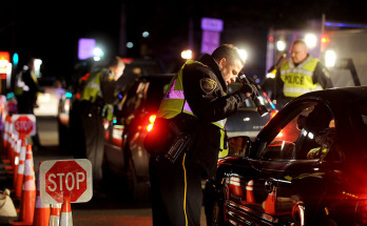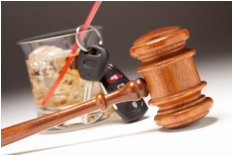DUI is one of the most common criminal charges for college-aged students (17-22) in Pennsylvania. It goes without saying that the drinking age in Pennsylvania is 21. Consumption of alcohol by anyone under 21 is illegal, and for this reason the standards are stricter and punishment often more severe for those charged with underage DUI in Pennsylvania.
For starters, while the blood alcohol content required to charge someone over the age of 21 generally begins at 0.08%, a driver under the age of 21 can be charged with driving under the influence if a chemical test shows a blood alcohol content of 0.02% or higher. Realistically, it’s nearly impossible to have just one alcohol beverage and not go over 0.02%, which is why many in the legal field refer to a charge of underage DUI as a zero tolerance offense.
As it pertains to sentencing, any driver under the age of 21 arrested for DUI in Pennsylvania is charged according to the “high” blood alcohol content rate. The impact of this categorization is that the potential punishment the underage driver faces will likely be far more severe. The potential penalties include jail time up to ninety (90) days, a $500.00 fine, and an automatic license suspension for twelve months if the driver’s blood alcohol content is 0.10% or higher. Penalties only get worse for repeat underage offenders with the potential for a multi-year license suspension and six months in jail.
In addition to the legal consequences, the collateral effects of an underage DUI conviction cannot be ignored. The damage caused by an underage DUI conviction include potential termination of an underage driver’s insurance policy (or at the very least a significant boost in the monthly premiums), significant damage to a college student’s academic standing and educational progress, and potential issues with a student’s financial aid if this student is on scholarship.
Finally, a conviction for DUI will give the underage driver a criminal record. Unless and until new legislation currently making its way through the Pennsylvania House and Senate clears, this record will be accessible by anyone who lawfully runs a background check on you, including prospective employers or administrators at colleges and universities.
If you or your child have been charged with an underage DUI in Pennsylvania, assistance from a skilled and experienced criminal defense attorney is critical. As outlined above, not taking this charge seriously can have dramatic and far-reaching consequences. The Criminal Defense Attorneys at Howland Hess O’Connell, led by Michael W. Cassidy, Esq., have extensive experience and knowledge in assisting clients through these matters. If any of the above information applies to you, call for a free consultation at (215)-947-6240 or contact us online to schedule a meeting.
Legal Disclaimer: The contents of this website are intended solely for informational purposes. They neither constitute nor imply an official legal opinion on behalf of Howland, Hess, Guinan, Torpey, Cassidy and O’Connell nor do they establish an attorney-client relationship of any kind. Howland Hess O’Connell encourages all readers to seek and consult professional counsel before acting upon the information contained on this site.



 RSS Feed
RSS Feed